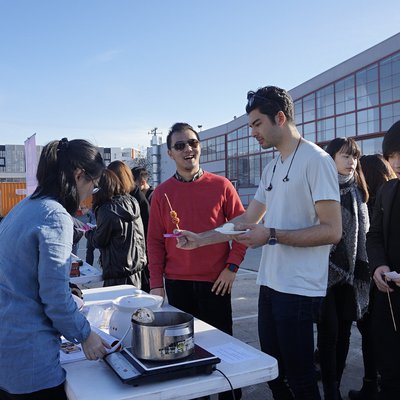Volunteer / Unpaid
Many students are interested in volunteering but are unclear about the difference between true volunteering (which does not require any work authorization) and unpaid employment or an unpaid internship (both of which require work authorization).
If you have additional questions, make an appointment with an ISS advisor to discuss your specific situation.
What is considered volunteering?
Only true volunteering, as defined by the U.S. Department of Labor in the Fair Labor Standards Act does not require work authorization. In order to be considered a true volunteer activity, it must meet all the guidelines below.
If you volunteer at an organization, be sure to get documentation confirming that you participated in their volunteer program and received no compensation for your volunteering.
The organization you are volunteering at must be a nonprofit organization. For-profit companies are not allowed to have volunteers. Most start-ups, art galleries, design firms, and companies are for-profit.
Whether a company is nonprofit or for-profit has to do with their tax status as designated by the Internal Revenue Service (IRS), not whether they are making a profit.
Please remember unpaid work or an unpaid internship done for a for-profit company requires work authorization before you begin, or you risk violating your visa status.
According to the Fair Labor Standards Act, volunteering must be done for “civic, charitable, or humanitarian reasons, without promise, expectation or receipt of compensation for services rendered”.
This means you do not receive any compensation or payment for your volunteering services, and no expectation exists that you will get a job at this organization at the end of your volunteering.
The company cannot bring you on as a so-called volunteer and then decide you are an employee and pay you for work you’ve already done.
As a volunteer, the activities you engage in must be activities normally completed by volunteers and not paid employees.
(Examples of volunteer activities include serving food at a soup kitchen, walking dogs at an animal shelter, or participating in a beach cleanup day).
The activities you engage in as a volunteer must be substantially different from the kinds of work performed by paid employees.
Many nonprofits have organized volunteer programs. Participating in such a program is likely to be considered volunteering and not unpaid work.
What is considered unpaid employment or an unpaid internship?
For immigration purposes, unpaid internships and projects are often also considered employment and also require work authorization.
Any activity, work, or internship you do that does not meet the definition of volunteering as discussed above is likely to be considered employment, paid or otherwise.
For immigration purposes, whether a person receives compensation is not the only factor in determining if an internship or other similar activity requires work authorization; if you are engaging in an activity for which a person would normally be paid, that activity is likely to be considered employment.
A few examples of unpaid internships are working as an artist or designer’s assistant, guest blogger or writer, brand ambassador, studio assistant, and gallery sitter.
These examples are meant to give you an idea of the types of activities that would be considered employment for immigration purposes; this is not a complete list.
Because of the broad range of activities considered employment for immigration purposes, international students are required to get work authorization for all employment or internships, or both -- whether paid or unpaid -- before beginning to work.
This includes unpaid internships done for academic credit.
What is considered paid employment?
Paid employment or internships always require work authorization. Anytime payment or other compensation for providing a good or service exists, this is considered employment for immigration purposes.
Compensation is not limited to just receiving a paycheck; other forms of compensation include, but are not limited to: gift cards, stock options, travel vouchers, and movie passes.
All of these types of things can also be considered compensation for immigration purposes.
Why is work authorization so important?
Engaging in any employment or internship, whether paid or unpaid, for academic credit or not, without proper work authorization is a serious violation of your F-1 status.
It can have significant consequences, both for your ability to stay in the United States to study and for future visa applications.
If you are found to have worked without authorization, your F-1 status will end, and you will need to make immediate plans to depart the United States since you will no longer have a legal status that allows you to stay in the country.
